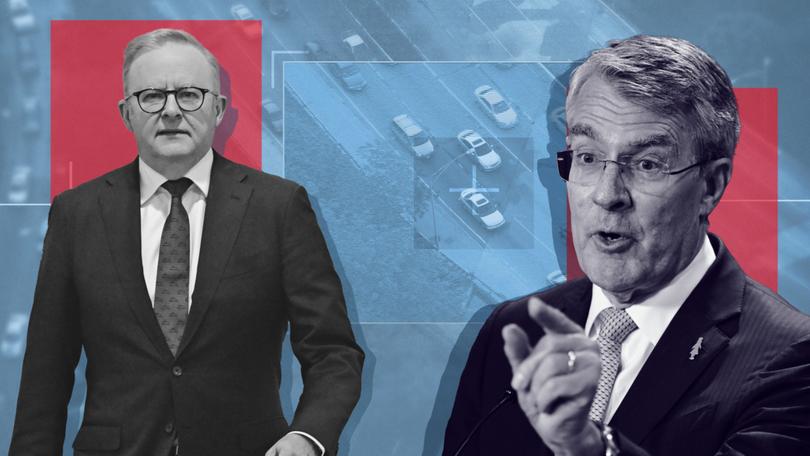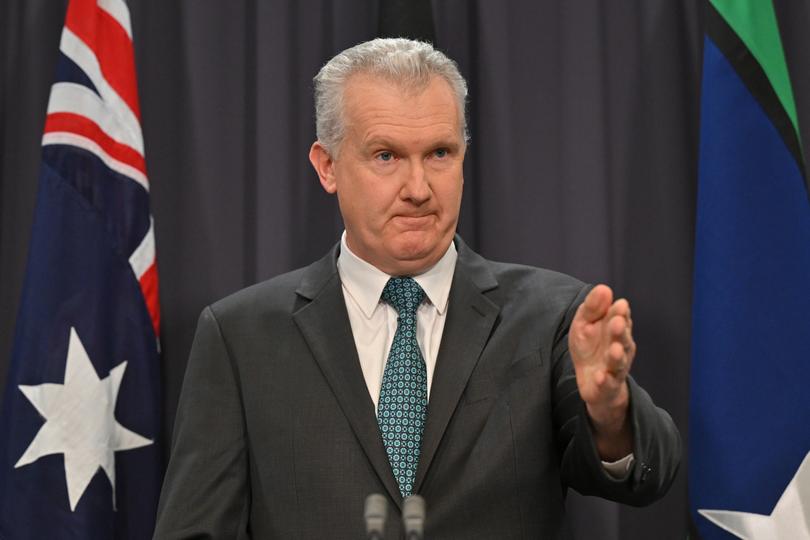ELLEN RANSLEY: Was Albo’s decision to move ASIO out of Home Affairs dept a crucial change or terrible mistake?
ELLEN RANSLEY: Depending on who you ask, Albanese’s decision to move the Australian Security and Intelligence Organisation away from the Home Affairs department was either for the best or a terrible mistake.

Depending on who you ask, Anthony Albanese’s decision to move the Australian Security and Intelligence Organisation away from the Home Affairs Department was either for the best or a terrible mistake.
In one camp, the mega-portfolio critics and sceptics, argue it makes sense, in part because the “complex” and overloaded department has never functioned as it was designed to since it was created by the Coalition in 2017.
In the other, the protectors, who have accused the government of “undermining national security”, arguing Labor have finally realised their long-held goal of “dismantling” a strong and powerful department designed to keep the country safe.
Sign up to The Nightly's newsletters.
Get the first look at the digital newspaper, curated daily stories and breaking headlines delivered to your inbox.
By continuing you agree to our Terms and Privacy Policy.Whichever camp you fit into, there was no denying that when the Prime Minister pressed “reset” on his cabinet on Sunday — made possible by the retirement of Linda Burney and Brendan O’Connor — the beleaguered Department of Home Affairs was in need of some serious new blood.
After months of fallout from the disastrous NZYQ High Court decision and ongoing detainees saga, Clare O’Neil was shuffled to housing, and her junior offsider Andrew Giles moved from immigration to oversee the skills and training portfolio now relegated from cabinet.
But in announcing Tony Burke would take over both portfolios (and try and clean up the mess), Mr Albanese buried the lead in revealing ASIO would not be under his purview. Instead, the operationally independent agency returns to its old home, joining the long list of Attorney General Mark Dreyfus’ responsibilities.

It marked the final piece of the puzzle in moving Australia’s security and intelligence agencies away from the often fraught, policy-motivated home affairs department, to the Commonwealth’s first law officer.
There, under Mr Dreyfus, ASIO again sits with our other key intelligence and security agencies: the Australian Federal Police, the Australian Criminal Intelligence Commission, and the Australian Transaction and Analysis Centre. All of these have been moved since Labor won government in 2022.
Mr Albanese has defended his decision, declaring it “made sense” to keep ASIO with the AFP. A number of experts have backed him in, saying it removes politics from Australia’s national security — but the move has drawn the ire of the Coalition.
Shadow home affairs minister James Paterson said it was the “final move in the coffin”, and the portfolio now exists “in name only”.
“(Mr Burke) will have no ability to deliver on the counter-terrorism, counter foreign interference, and counter-espionage missions the portfolio was originally tasked with, further undermining our national security,” Senator Paterson told The Nightly.
He said Mr Albanese needed to explain why he had “pulled apart our key domestic security department”, which had been designed to keep the tools needed to combat growing domestic threats “under one roof”.
Former ASIO director-general and career bureaucrat Dennis Richardson said differently.
“Firstly, ASIO with its special power, should report to the first law officer of the land, and not to another minister,” he said.
“Secondly, ASIO reported to the Attorney-General (before 2017), and it was moved into the home affairs department, not because of any mistake or disaster that occurred, and not as a result of any inquiry with a recommendation. It moved because of executive decision making — perfectly proper but no good reason.”
Mr Albanese has baulked at suggestions there was any motivation other than cleaning up the “simply dysfunctional” system Labor had inherited, emphatic in his declaration the latest gutting was in the best interests of the country.
“We’ve had a trinity of reports from Christine Nixon, from Dennis Richardson, and indeed the former head of Prime Minister and Cabinet under the former Liberal–Coalition government who’ve all spoken about the dysfunction that was there in home affairs,” he said on Monday.
“So what we’ve done is talk those issues through, come up with a sensible proposition.”
Dysfunctional as it might be, the department also quickly became a political nightmare for Mr Albanese’s government in the wake of last year’s landmark NZYQ High Court case, which has triggered the release of more than 170 detainees — some with serious criminal histories — out into the community.
Michael Shoebridge, who heads up Strategic Analysis Australia, said the writing had been on the wall “since its formation” and that the portfolio was “sufficiently troubled and underwhelming”.
“Think about the continuing trail of troubles and failure that’s been popping out of home affairs — losing multiple high court cases, having people with criminal records released into the community, scandals about government procurement around things like offshore detention ... It does seem that the portfolio didn’t really come together and improve functioning for different agencies, it just complicated it,” he said.
While the Coalition has yet to declare whether it would intend to move the security agency back to the Home Affairs department should it win the next election, Mr Shoebridge suggested doing so would be a “very bad idea”.
“The idea that this might become some kind of bungee cord arrangement, where it bounces backwards and forwards depending on who’s in government, that seems to me like a very bad idea,” he said.

